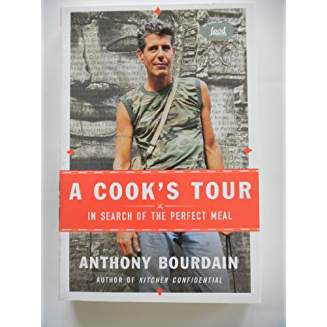My favourite Crime writer has done it again! A great story, colourful characters, zippy dialogue, an off-beat ex-cop (demoted to local health inspector – oh the pain!) an exotic setting (the Bahamas) and never a dull moment.

There’s fraud on a gigantic scale against Medicare – a scooter scam, to be precise. Then there’s a revolting voodoo hag, who’s a nymphomaniac. There’s an equally revolting monkey, reputed to have starred in a Johnny Depp pirate movie. Plus there’s a witless sex-mad drop out, working on his tell-all celeb dairy, relating his steamy affair with his former schoolteacher. He finds her via Facebook . Said ex-teacher being one of the disgraced detective’s ex-lovers. He’s currently in love with a sexy Cuban pathologist. Complications abound.
Toss in a scheming wife in cahoots with her scary husband – and he’s really scary. The action doesn’t stop. The laughs keep on coming. Hiaasen had me laughing out loud by page 5. He’s the only crime writer I can think of who makes his readers laugh.
But besides all the merry mayhem, Hiaasen continues to beat his eco-warrior drum on the topic of greedy land developers who couldn’t care two hoots about the environment or the rights of local people. The wonderful thing about Hiaasen is that he doesn’t cram his eco- campaigns down your throat, or bash you over the head with his soap box, but the issues are there as a strong undercurrent. He’s a very skilful writer, is Mr H.
He’s also on a mission about ghastly misdemeanours in the kitchens of many seafood eateries in South Florida. Truly toe curling and gut turning! If you’re touring Florida, avoid the seafood! Correction: Probably safer to subsist on crackers and beer until you leave.
He finishes off the convoluted tale in a thoroughly satisfying way. All the baddies and low-lifes get their true desserts, not necessarily by being hauled off by the cops. Sometimes its better to have the baddies eaten by sharks or other useful garbage disposal devices.
Altogether a highly entertaining and enjoyable read. Perfect for holiday downtime. I’m just getting in a little early practice.


 Sub-title is: A Life of Adventures , and this says it all. What a life! You name it, he’s done it – hunted big game, flown aeroplanes, scuba dived, travelled the world, mixed with movie stars, and been enchanted by beautiful women. Smith’s adventure novels mirror his own life. He’s been compared to revered adventure authors like John Buchan, and H. Rider Haggard. Boyhood influences included the Biggles series of books, and also the Just William books. Combined with his boyhood outdoor African life, its not hard to see where his adventure writing’s early influences came from.
Sub-title is: A Life of Adventures , and this says it all. What a life! You name it, he’s done it – hunted big game, flown aeroplanes, scuba dived, travelled the world, mixed with movie stars, and been enchanted by beautiful women. Smith’s adventure novels mirror his own life. He’s been compared to revered adventure authors like John Buchan, and H. Rider Haggard. Boyhood influences included the Biggles series of books, and also the Just William books. Combined with his boyhood outdoor African life, its not hard to see where his adventure writing’s early influences came from.


